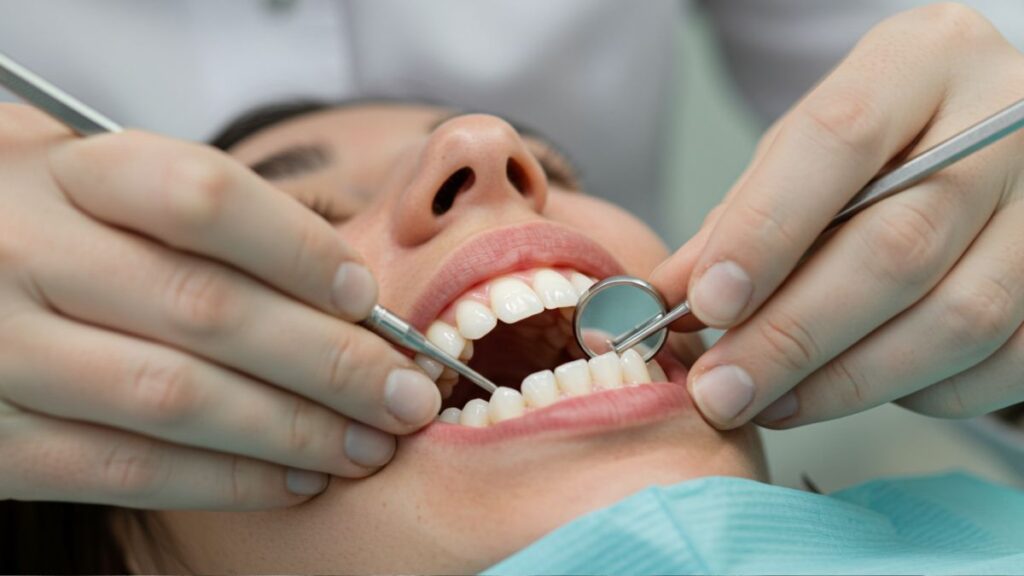General dentistry often brings to mind routine cleanings, cavity checks, and the occasional filling, but its significance runs far deeper than maintaining a bright smile. Your mouth is a gateway to the rest of your body, and its condition can mirror your broader health. While many view dental visits as isolated events, general dentistry is deeply tied to systemic well-being, proactively identifying and preventing health complications.
We will explore how seemingly simple dental care practices can have far-reaching effects, from preventing infections to aiding in managing chronic diseases. Whether you’re working with a family practitioner or a dentist in North Vancouver, regular dental care should be integrated into any wellness routine rather than being an afterthought. Understanding this connection can shift how we approach oral hygiene, seeing it not just as cosmetic upkeep but as a lifelong health and vitality foundation.
How General Dentistry Impacts Total Body Health
Oral Infections and Systemic Disease
One of the most direct links between general dentistry and overall well-being is managing and preventing oral infections. Conditions such as gum disease (periodontitis) or untreated cavities don’t just affect your mouth—they can contribute to serious systemic issues. Bacteria from infected gums can enter the bloodstream and travel to other parts of the body, exacerbating conditions such as heart disease, diabetes, and even respiratory infections.
Research shows a strong correlation between chronic gum disease and cardiovascular complications, making it vital to treat oral infections early. Dentists are often the first to spot early signs of these conditions, providing an opportunity for early intervention before they spiral into more severe health crises. General dental visits that include deep cleanings, plaque removal, and assessments for inflammation can help prevent bacteria from spreading beyond the mouth, reducing the burden on the immune system and promoting overall health.
Dental Health and Chronic Illness Management
Managing chronic illnesses such as diabetes, arthritis, or autoimmune disorders often requires a multidisciplinary approach, and general dentistry is a key player. For example, people with diabetes are more prone to infections and have slower healing responses. Poor dental hygiene can lead to gum infections that complicate blood sugar control, while high glucose levels can further fuel oral bacterial growth. This two-way relationship means managing dental health can directly contribute to more stable glucose levels and better diabetes outcomes.
Similarly, patients with rheumatoid arthritis may struggle to maintain oral hygiene due to limited mobility in their hands, making regular dental visits even more important for preventing oral complications. Dentists can recommend adaptive tools, provide targeted cleanings, and collaborate with medical professionals to support the individual’s health goals. Through proactive dental care, patients with chronic illnesses can improve their quality of life and reduce complications, showing how essential dentistry is to holistic health management.
Nutritional Impact and Digestive Health
Your teeth play an essential role in the first stage of digestion, and their condition can impact your diet and nutritional intake. Missing, decayed, or painful teeth can lead individuals to avoid certain foods, especially those that are fibrous or hard to chew, like vegetables, nuts, and whole grains. Over time, this can lead to a nutritional imbalance, contributing to fatigue, weakened immunity, or gastrointestinal problems. Regular dental care can preserve tooth function and structure, allowing individuals to maintain a balanced and diverse diet.
In addition, general dentists often advise on oral health practices that support better digestion, such as thorough chewing and mindful eating. By ensuring patients can comfortably eat a range of foods, dental care supports nutrient absorption and gastrointestinal efficiency. This connection between oral structure and nutrition reveals another layer in how dental practices contribute to broader physical wellbeing, going far beyond brushing and flossing.
Mental Health, Self-Esteem, and Daily Functioning
The emotional impact of oral health is frequently underestimated. Dental issues like missing teeth, persistent bad breath, or discoloration can affect self-esteem, making individuals withdraw socially or avoid smiling altogether. Over time, this can contribute to feelings of isolation, anxiety, or depression. General dentistry addresses these issues by treating them physically and boosting confidence and supporting a positive self-image. Cleanings, routine maintenance, and restorative procedures help individuals feel more comfortable in social and professional settings.
Chronic dental pain can also impair focus and reduce productivity, creating stress and hindering daily functioning. Addressing oral pain or discomfort allows individuals to return to routines with greater energy and emotional resilience. The relationship between oral health and mental well-being highlights the importance of accessible dental care as emotional and psychological support. General dentists enhance a person’s mood, confidence, and outlook.
Your mouth is more than just a place for teeth—it reflects your total health and is a key player in your body’s overall functionality. From supporting chronic disease management and proper nutrition to boosting mental health and preventing illness, general dentistry influences much more than we often recognize. The benefits extend beyond aesthetics, shaping how we eat, speak, and interact with the world. Embracing this perspective enhances your smile and contributes to a stronger, more resilient body and mind. By prioritizing general dental care, you’re not just protecting your teeth but safeguarding your entire quality of life.






